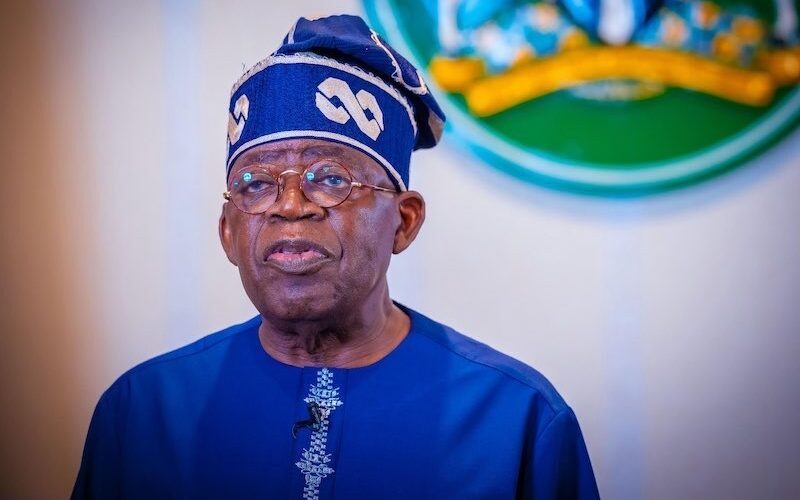The Constitution has flaws, but not so bad that it should be replaced, argues MOHAMMED HARUNA
Two weeks ago, on July 16 to be precise, the self-described Eminent Patriots, in conjunction with the Nigeria Political Summit Group, convened a three-day National Summit on “The Future of Nigeria’s Constitutional Democracy” at the Transcorp Hilton Hotel, Abuja. At that summit, two pre-eminent Nigerians, former president, Chief Olusegun Obasanjo, and former Secretary-General of the Commonwealth, Chief Emeka Anyaoku, grabbed media headlines for their diametrically opposed views on the country’s Constitution.
Anyaoku, who spoke first, said the problem with the country was its Constitution basically because it was a military imposition and did not reflect the country’s plural nature. His solution, he said, was to go back to the parliamentary constitution of the First Republic which was bequeathed to us to by our British colonial masters. Obasanjo disagreed and said the country’s problem was not its Constitution, imperfect as it is. The problem, he said in effect, was the bad faith of those who operated it.
It is hard, if not impossible, to disagree with Obasanjo, even though as president, he did not always respect the checks and balances built into the Constitution.
Anyaoku is, of course, not alone in blaming our Constitution for the country’s woes. The vast majority of the country’s “progressives” do, and their voices are much, much louder than those of conservatives. Probably, the loudest among them is The PUNCH. Editorial after editorial, it has never left any of its readers in doubt that not only does it think our Constitution is unworkable. It has repeatedly said it is, indeed, a fraud.
The latest of such editorials took up three quarters of its editorial page in its edition of July 8. Entitled “Attah’s position on the 1999 Constitution resonates”, the 1,209-word editorial unequivocally supported the view of Obong Victor Attah, former two-term governor of Akwa-Ibom State and prominent member of the Eminent Patriots, that what the country now needs is not merely an amendment to the Constitution but a brand new one because it is simply irredeemable.
“We,” Attah reportedly said, “cannot amend what is so fundamentally bad. We need a completely new constitution.” Attah’s call was against the background of the on-going exercise by the current National Assembly to further amend the Constitution which, he said, has only given us a polity that is “a unitary system masquerading as a federalism.”
“Attah’s position,” The PUNCH said, “is compelling. The 1999 Constitution is a charade from start to finish—in letter, spirit, and form.”
Clearly, the newspaper would be in total agreement with Anyaoku in his disagreement with Obasanjo. But both the newspaper and the retired top diplomat – and, of course, Attah as well – are, in my view, wrong to blame our Constitution for the country’s woes.
Our Constitution is, of course, not perfect simply because nothing man-made can be perfect. To begin with, as a roughly a 61,000-word document, it is rather too bulky for a constitution, especially compared to, say, the United States constitution we modelled it after; theirs, as a roughly 7,500-word document, including all of its 27 amendments, is a study in brevity, clarity and simplicity. Second, because our Constitution is military in origin, it sounds plausible to dismiss it as an imposition.
Third, our current 36-state federalism came about by a strong centre ceding powers to the states it created out of the original three regions that made up the country at independence in 1960. This is in sharp contrast to the US which came about by first, the original 13, and eventually 50, independent states coming together to cede powers to the centre.
The differences between the two constitutions in size, origin and evolution notwithstanding, both are presidential democracies whose common feature is a division and balancing of power among the three arms of their governments, namely the legislature, the executive and judiciary. But, contrary to popular public perception in this country, Washington DC, the US capital, exerts far greater power and authority over its 50 states and even over the private sector than Abuja, Nigeria’s capital, exerts over its 36 states.
However, the fact that of the US constitution has served it well for nearly 240 years since 1789, is not just because of its slim size, origin or history. It is essentially because its citizens, leaders and followers alike, have, by and large, kept faith with its provisions.
In his total rejection of the current Constitution, Attah said President Bola Ahmed Tinubu, himself a victim of the abuse of the Constitution by President Obasanjo when he was Governor of Lagos State, should appreciate the need for a totally new Constitution.
“This particular President”, he said, “is in the best position to do it because he suffered the consequences of the type of thing that this Constitution allows to happen. His local government money was seized unconstitutionally… So, he is really in the best position to do it, … if he doesn’t do it, he would have left a worse Nigeria than he met.”
From his own very words, it ought to have been clear to Attah that the problem between Obasanjo and then Governor Tinubu was not the Constitution itself. He himself said the money for the Lagos LGAs “was seized UNCONSTITUTIONALLY”. The Constitution, as our Supreme Court ultimately ruled, clearly forbade Obasanjo from doing what he did. It is therefore wrong for Attah to blame it instead of the person who breached its injunctions. Rules, after all, do not execute themselves. It is people who do.
And unconstitutionally withholding the money for Lagos LGAs was not the only rule Obasanjo breached while in power. He hired and fired chairmen and other senior officials of his party at will, appointed and sacked Senate Presidents at will, sacked state governors and state legislatures at will, tried, albeit unsuccessfully, to fire his estranged Vice-President, and even tried, again albeit unsuccessfully, to abrogate the Constitution’s two-term limits for the elected executive offices of the president and governors.
It is such demonstration of bath faith against our Constitution, not just by Obasanjo alone, but by so many of our leaders that is mainly responsible for the seeming failure of our Constitution to serve our country well. And its not just our leaders; even ordinary Nigerians generally tend to preach one thing but practice the opposite. And, as the saying goes, a people get the leaders they deserve.
Simultaneous with his call on President Tinubu to spearhead the making of a new constitution, Attah also pleaded with the National Assembly to pass a bill for the convocation of a national conference with representation from all relevant groups, ethnic nationalities, and socio-cultural groups across the country, “to sit down and prepare a proper constitution… so that it is a Nigerian Constitution.”
The 1999 Constitution, as we all know, is essentially the same as that of 1979 which ushered in the Second Republic. Surely, Attah must be aware that that Constitution emerged through a national conference similar to the one he is now calling for. And that Constitution, it can be argued, is the best shot of all the efforts by Nigerians at constitution making since the first attempt in 1922. The argument that it is merely a military imposition certainly does gross injustice to its framers.
First, the draft of that Constitution was framed and written by a 49-member Constitution Drafting Committee (CDC) composed of some of the most brilliant and accomplished Nigerians, headed by the late Chief FRA Williams, the country’s first Senior Advocate. The committee spent nearly a year going round the country before it wrote and submitted its draft to the authorities under Obasanjo as military Head of State.
Second, the Constituent Assembly (CA) which worked on the draft was composed of 230 Nigerians, only 27 of whom were government nominees, seven of them being chairmen of the seven subcommittees of the CDC. The rest were all elected through what was one of the most credible elections ever conducted in the country. Anybody going through the list of its members will testify to the fact generally they were among Nigerians of the best character and highest achievements in their various fields.
This Assembly spent about nine months going through the draft before it produced the Constitution. It speaks volumes of the credibility and integrity of that Constitution that some of the founding fathers of our nation like Chief Obafemi Awolowo, Dr. Nnamdi Azikiwe and Malam Aminu Kano, contested in the two general elections of the Second Republic before it was overthrown in 1983.
Yes, our Constitution has its flaws. But no, those flaws are not so fundamental that it must be replaced with something completely new. Our problem, as I have often said, is not the tool as such but, as the English would say, it is that of a bad workman always quarrelling with it instead of learning how best to use it.
Haruna, a veteran journalist and political columnist, is a National Commissioner with the Independent National Electoral Commission.
The post THE 1999 CONSTITUTION: BETWEEN OBASANJO AND ANYAOKU appeared first on THISDAYLIVE.


